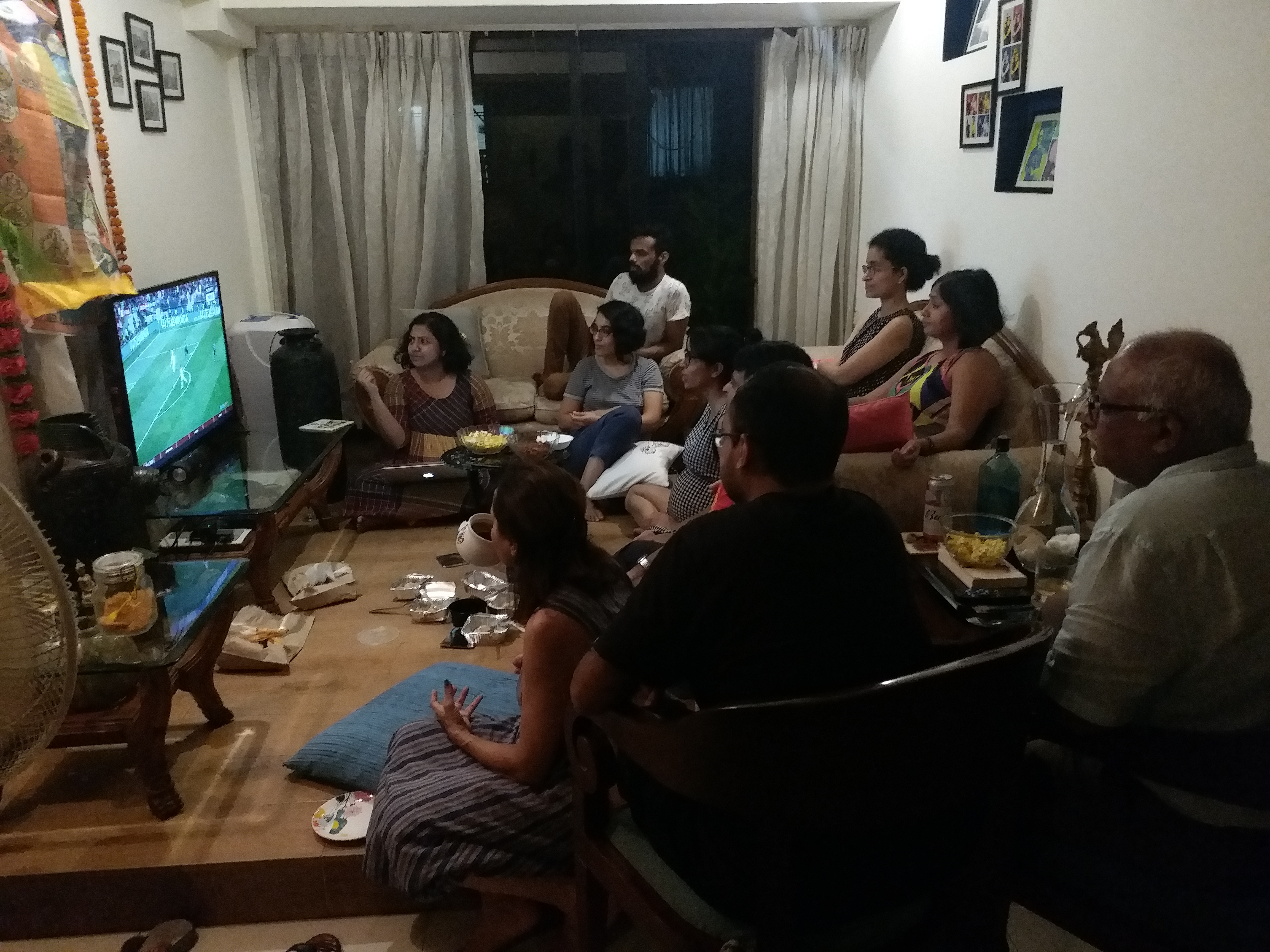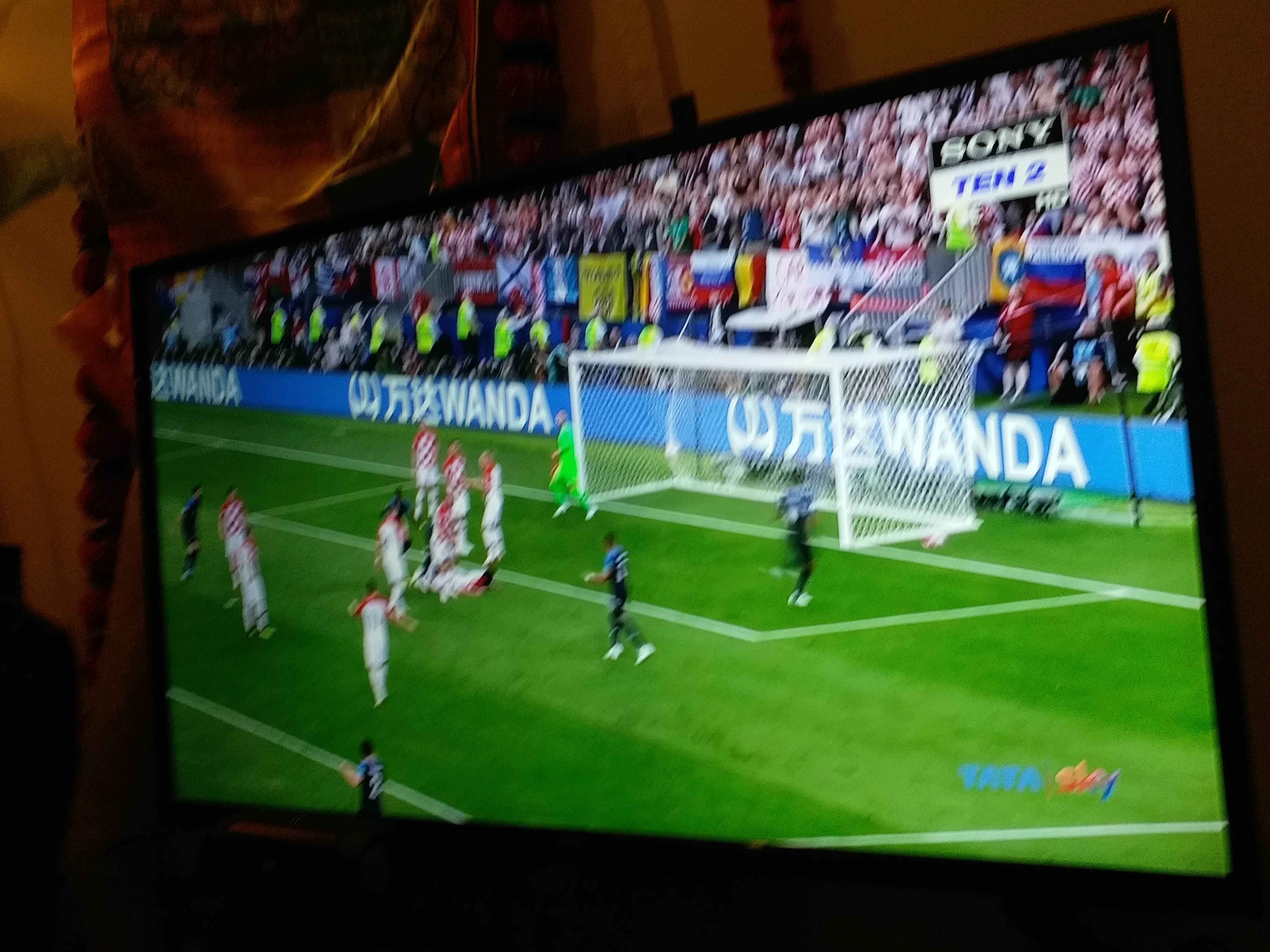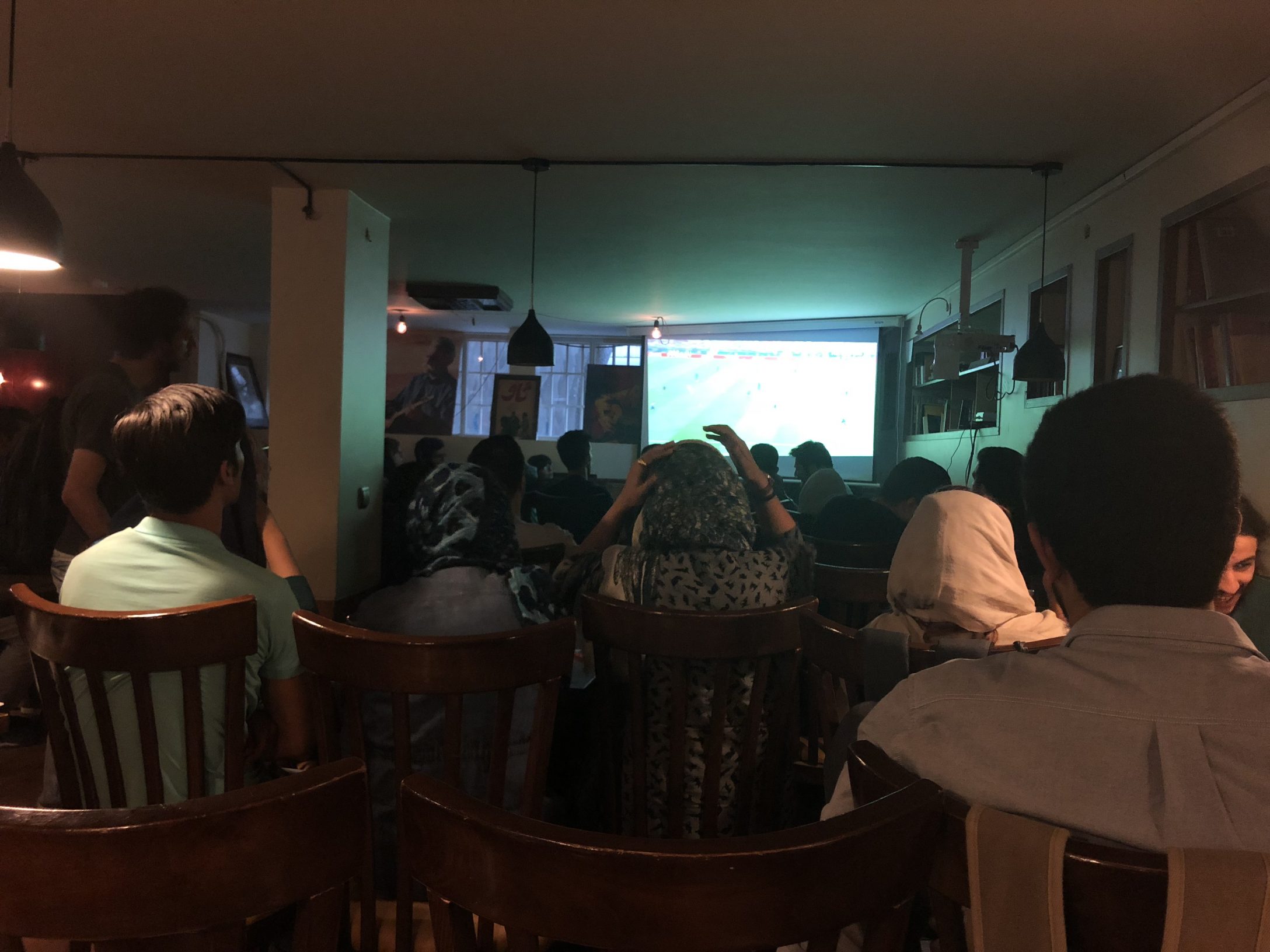Pedestrian, 7:30 PM. Palestine Street, Tehran, Iran.
“No one gives a damn about this game,” my Snapp driver declared as he dropped me off at the cafe; “it’s between a country that sells us bad cars and one we can’t even find on a map.”
Despite his predictions, the World Cup final played out to a packed house. The 40-seat space served more than a hundred, sitting in rows on the ground and standing by the door. Close to the city’s most prominent art universities in downtown Tehran, the crowd mostly consisted of students from nearby schools. The warm hues of the wood-paneled space welcomes visitors, and the walls were covered with notices for upcoming stage productions and art shows, as well as framed posters of classic Iranian films.
“We gotta root for the underdog,” the girl sitting next to me says. She wears a buddhist bead bracelet, as do others in her group. The boys overwhelmingly have long, perfectly coiffed beards. Together they smoke Iranian Bahman label cigarettes, and drink cups of black tea throughout the game. Intermittently, new guests arrive, and all their friends get up, exchanging pleasantries to the dismay of those sitting behind them. But no one objects. A kiss on each cheek is mandatory, no matter how tense the game.
At 37 minutes, when a penalty shot is called out for France and Antoine Griezmann goes to stand behind the ball, one person yells: “This is a goal. Subasic is no Beiranvand!” People cheer, yelling and clapping and remembering the Iranian goalkeeper’s successful face-off with Ronaldo during a penalty shot just weeks before. Sure enough, Griezmann shoots a goal.
In the second half, the entire kitchen staff come out to watch from behind the counter – including the 19-year old dishwasher from a village in Kermanshah in western Iran. The crowd is vying for Croatia. But one boy standing next to me reminds his friends to be “realistic.” By the final minutes to the game when Croatia is still behind by two points, people are already chatting, saying their goodbyes. “You never win the first time,” the boy pronounces, with the conviction of an wise sage lecturing a crowd.
On the way home, the driver is watching the game highlights on his cell phone, on top of his dashboard. I look at him, baffled. “You sure you can drive and watch TV at the same time?” I ask. My voice squeaks with worry. He grins without looking, his eyes glued to the screen “relax,” he says. “This is Iran, we know how to multitask.”
***
8:30 PM. Supriya Nair. Bombay, India.

This week the monsoon has enclosed Bombay in perpetual storm, hemming people indoors, washing away roads, spewing our garbage back to us from the sea. World Cups always come with the rains here, and I like it: I like sitting on my plush couch in a darkened room, bathed in the light of the TV like the object of a hypnotic ritual, crumbling my keyboard along with the rest of Twitter, pausing occasionally to listen to lone shouts that rise from other houses through the lashing sound of the water.
But now my best friend, nauseous as hell, is about to give birth in two weeks. We haven’t done nearly enough to welcome the baby. The final necessitates a change of scene. It is a purpose-driven celebration: we will keep one eye on the football and finish painting the onesies we started for the new arrival some days ago. It will be entirely inappropriate to the masculine vanity of the whole affair, we think; a joke to both enhance the spectacle and undermine it. Our hearts beat for elegant underdogs Croatia, for whom fervour grows as the match gets underway. The baby clothes go sadly neglected as drama overwhelms the Luzhniki and the world, sweeping up even our cocoon of a living room. So much for a contrarian World Cup party. The only thing we end up making is a ceremony of hope and disappointment, of tears for Luka Modric and some half-hearted heckling for the brilliant young heroes of the day. Who knows? A decade from now the little bean about to be born will feel a faint and resentful awe for Kylian Mbappé, 29, and have no memory of where it came from.
The rain breaks at midnight, before I walk home. At the bus stop outside my house, two boys, shielding themselves from the run-off with large black umbrellas, are watching the replays on a phone between them. The storm has lapsed, and so has the dream, but we chase it for a few minutes longer, before waking.







